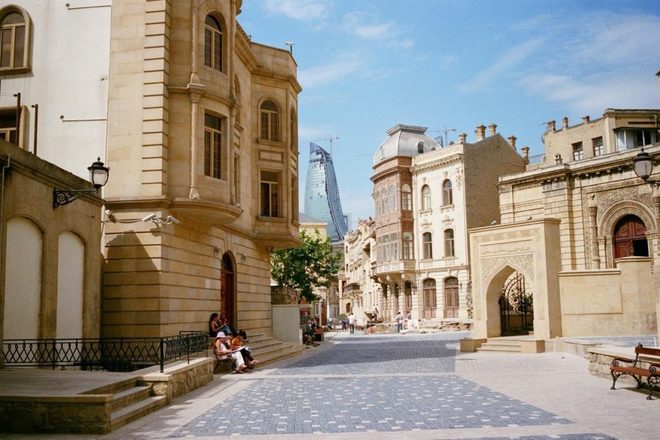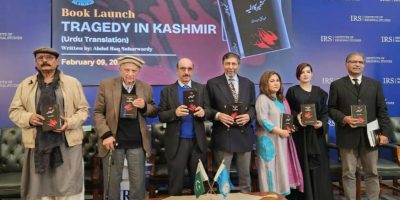Walled City of Baku: World Cultural Heritage

DNA News Agency
The Walled City of Baku, also known as Icherisheher (Inner City or Old Town) is the core of ancient Baku, the capital city of the medieval Azerbaijani state of Shirvanshahs. As the historical and architectural pearl of ancient Baku, it is an open sky museum, also called the Acropolis of Baku, Old City or Icherisheher. With the development of the oil industry in Azerbaijan in late 19th century, the city expanded beyond the fortress walls and many buildings were constructed outside the fortress walls, and Baku grew rapidly in size. The Walled City of Baku remained as a traditional residential and historical centre coexisting with the surrounding city.
Icherisheher as the world heritage
The splendour of Icherisheher (Walled City of Baku) is that it reflects a mixture of unique architectural monuments and the spatial urban planning with original street views. The historical city is still a vibrant city with residential areas housed by local communities. The distinctiveness of Icherisheher within Baku is evident from a view of the plan of the city. The surrounding urban pattern is strikingly different from that of the fortress. The medieval street pattern creates a feeling of an endless maze that is perceived while walking within the city. Its quarters are much smaller than the blocks of the rest of the Historic Centre.Icherisheher has retained the relative homogeneity of its architecture and urban pattern because of its exclusion from Baku’s dynamic urban development in the 19th and 20th centuries. This phenomenon is rare among historic cores in modern cities. The low and dense urban structure ascending in steps onto the hill has been accentuated only by minarets, the Palace and the Maiden Tower. Icherisheher has preserved much of its defensive walls, which define the character of the property. The most ancient monument ofIcherisheher is the Maiden Tower – symbol of the city of Baku. Another monument of universal value, one of the pearls of Azerbaijan’s architecture, is the 12th to 15th-century Shirvanshahs’ Palace, located at the highest point of Icherisheher. Earlier monuments of Icherisheher include the Mohammed Mosque, together with the adjacent minaret built in 1078, and remains of the 9th to 10th-century mosque near the Maiden Tower. Considering that this medieval city represents an outstanding and rare example of a historic urban ensemble and architecture, UNESCO inscribed it on the World Heritage List in 2000, and it is being preserved under the auspices of UNESCO as a historical-architectural reserve.
Monuments of Icherisheher
There are hundreds of historical-architectural structures in Icherisheher, a site no bigger than 22 ha, surrounded by the fortress walls. Four of these structures are of international and 28 of national significance. The remaining monuments (about 500) are of local value.The Maiden Tower, located in the heart of the Walled City of Baku, has a unique cylindrical form and distinctive interior. The tower was built on a giant rock sloping down to the shore of the Caspian Sea. The heights of the northern and the southern parts of the Maiden Tower of Baku are 31m and 28 m respectively. There are several theories about the history and purpose of the tower’s construction. According to some historians, people used the beacon tower for the purpose of sending alarm signals to other towers, with fire during the night and smoke during the day. There are also researchers who relate the history of the monument to ancient times, referring primarily to the tower’s structure. They believe the Maiden Tower goes back to the Zoroastrian period and was a Zoroaster cell, a fire-worshipper’s temple.Thus the Maiden Tower is believed to have been built for fire-worshipping, and only later in the Middle Ages used as a defence tower. Another landmark in the Walled City of Baku is the Palace of Shirvanshahs’ Palace, the residence of the Shirvan governors. With its unique historic and architectural characteristics, it is one of the prime examples of the Walled City’s medieval architecture. The Shirvanshahs’ Palace complex is composed of nine buildings: the Palace, the Divankhana (Courthouse), the Dervish’s Mausoleum, the Eastern Gate (Portal), the Palace Mosque, the Key-Qubad Mosque, the Palace Burial Vault, the Hammam (bathhouse) and the Ovdan (cistern). The palace is built on the highest point of one of the hills within Icherisheher. Extending over three superimposed terraces, it is clearly visible from the sea and from the heights surrounding the city. Mohammed Mosque, another historical monument is one of Baku’s most significant examples of the architecture of the Islamic period. It was builtin 471. The variously-decorated one-room prayer hall is connected to a small vestibule on the north side of the mosque. The cylindrical minaret attached to the mosque ends on the top with a tracery muezzin balcony set on a stalactite cornice. Spiral stone staircases built within the minaret start from the floor of the prayer hall. A Quran ayais inscribed in Arabic with Cufic writing along the stalactite belt on the upper part of theminaret. During Peter the Great’s marine expedition to Baku, by order of the Russian Fleet’s Admiral Matyushkin, artillery bombardment of the Palace from the sea caused serious damage to the monument. The top of the minaret was shattered, which is why the mosque is also called Siniqqala, broken tower.
Management of the Walled City of Baku
Icherisheher and its buffer zone, as designated by Presidential Decree No. 725 of 13 June 1998, are protected by the Law of the Republic of Azerbaijan on the Preservation of Historical and Cultural Monuments, which among other clauses, forbids the destruction or alteration of registered monuments, regardless of whether they are in public or private ownership, without permission from a designated authority. In 2007, the Administration of State Historical-Architectural Reserve ‘Icherisheher’ was established as an institution responsible for the management and conservation for future generations of the monuments within Icherisheher and the entire architectural and urban complex. The Administration of Icherisheher is independent and funded by the Government. An Integrated Area Management Action Plan (IAMAP) and Conservation Master Plan of Icherisheher was developed in 2007. The Conservation Master Plan has been reviewed and formally approved by all stakeholders, and integrated with the IAMAP and adopted in the urban planning system of the City of Baku. The Administration implemented the actions undertaken under the IAMAP: the state of conservation of the property has been documented and monitored; standards and procedures related to the regulation of rehabilitation of existing buildings are formulated; maintenance and improvement of public spaces are carried out; strategic interventions to improve the quality of life in Icherisheher are developed; and community outreach and scientific programmes are organized and successfully managed.
Restoration and repurposing historical buildings into cultural centers
Icherisheher is home to numerous historical buildings of universal, national and local value. Since inscription on the UNESCO World Heritage List, the City Administration has successfully completed the conservation and restoration of several historical monuments such as the Maiden Tower, Palace of the Shirvanshahs, Mohammed Mosque, Beyler Mosque and others and brought them to life. The Administration managed to restore not only the architecture but also the social values associated with the historical buildings.
The conservation of the Maiden Tower was launched in 2009 according to the ‘Detailed Conservation Master Plan of the Historic Center of Baku’. It was carried out under the supervision of the Erich Pumper Atelier, an internationally renowned Austrian company specialized in restoration and conservation, with the involvement of local and foreign specialists. In addition, a new permanent exhibition was installed after the conservation works, presenting the Maiden Tower as a historic cultural monument of global value and addressing a very wide audience, encompassing local and international visitors and both adults and children. The most up-to-date technologies and media, indispensable for a modern museum, are widely used in the exhibition. Traditional and electronic media together create a rich and multidimensional experience of the monument. The new museum exhibition gives visitors the opportunity to discover a wide range of information on the history of the monument, its functions and the legends surrounding it. Conservation work was also undertaken on the Palace of Shirvanshahs. The most urgent conservation tasks pertained to the Shirvanshahs’ mausoleum and Divankhana court square. Both feature particularly fine examples of stonemasonry on the portals and their stalactite arches. All preservation work was carried out based on the principles of authenticity and unaltered reproduction of historical information, and with respect for features caused by aging, and therefore in compliance with the 1964 international Venice Charter for the Conservation and Restoration of Monuments and Sites. Once conservation works were completed, a new museum exhibition was created at the Palace of the Shirvanshahs complex. Along with rich museum exhibits, the exhibition makes extensive use of video projection, multimedia animation and audio and video presentations. In addition, at the Palace of the Shirvanshahs complex, visitors can use the services of a multimedia guide for the first time. The depiction of the palace throne room, the exhibits and video presentations recreate the decor and atmosphere of the Shirvanshah era, and the 3D animated model of the history of the Shirvanshahs further enhances visitors’ experience.TheIcherisheher complex of historical and architectural monuments is the greatest cultural inheritance of the Azerbaijan nation. It represents a constant source of interest for both local inhabitants and visitors to Baku.
Another conservation work, which is currently underway is in the Baku Khans’ Palace. Upon the completion of the conservation works, “Baku History” Museum will be created in the Palace, which will display the medieval life via interactive panels.
Related News

German Consul General Lauds Legacy of Dr. Ruth Pfau’s Leprosy Centre
KARACHI, FEB 9 /DNA/ – Thomas E. Schultze, Consul General of the Federal Republic ofRead More

IRS hosts launch of Urdu translation of tragedy in Kashmir
ISLAMABAD, FEB 9 /DNA/ – The Institute of Regional Studies (IRS), Islamabad, hosted the launchRead More



Comments are Closed